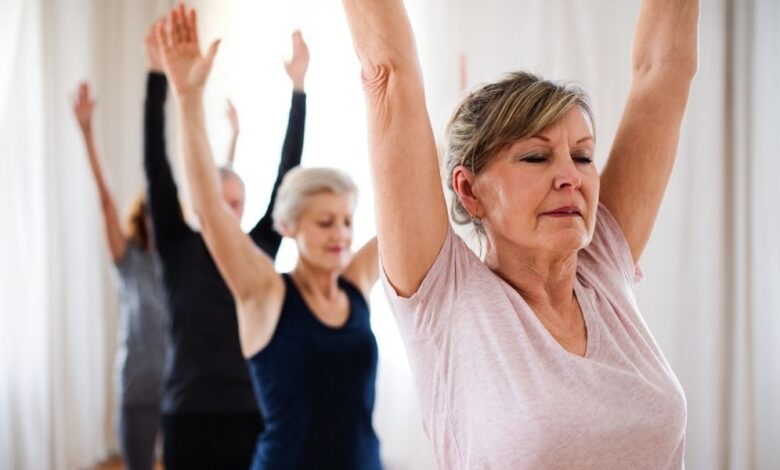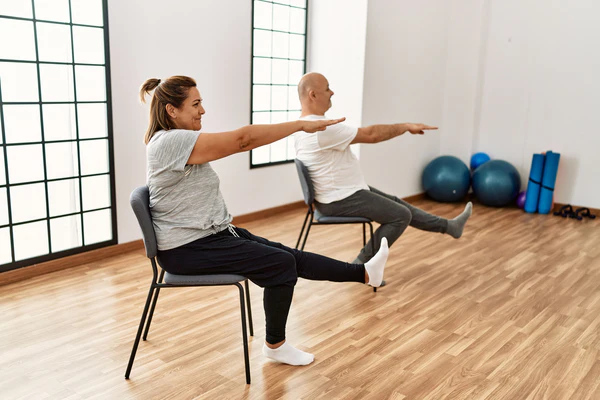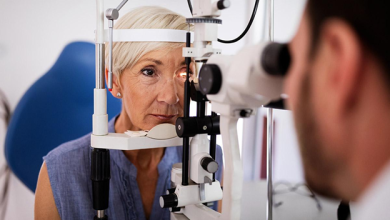Keep it moving: the importance of exercise for older adults

Exercise is crucial for maintaining health and independence as we age. It supports physical strength, mental well-being, and overall quality of life. The importance of exercise for older adults cannot be overstated. It helps reduce the risk of disease, improves bone health, and enhances balance and coordination. Regular physical activity also supports mental health and helps maintain a healthy weight. Whether through walking, strength training, or yoga, exercise is a powerful tool for aging gracefully and staying active.
Find below five key reasons why exercise is so important for older adults.
Reduces the risk of disease
Regular exercise lowers the risk of many chronic diseases, including heart disease, diabetes, and high blood pressure. Cardiovascular activities like walking, swimming, or cycling improve circulation and strengthen the heart. Exercise also helps regulate blood sugar levels, reducing the risk of type 2 diabetes. Seniors who stay active are less likely to develop illnesses and are better equipped to manage existing conditions. Physical activity boosts the immune system, making it easier to fight off common infections.
Improves bone health
Bone density naturally decreases with age, increasing the risk of osteoporosis and fractures. Weight-bearing exercises like walking, dancing, or light strength training help strengthen bones and slow bone loss. Strong bones are essential for maintaining mobility and independence. Regular physical activity also improves joint health, reducing stiffness and discomfort associated with arthritis. By focusing on exercises that promote bone strength, older adults can prevent falls and maintain an active lifestyle.

Enhances balance and coordination
Balance and coordination are crucial for preventing falls, a common concern among older adults. Activities like tai chi, yoga, or simple balance exercises improve stability and strengthen the muscles that support the body. These exercises enhance awareness of movement and help seniors feel more confident in their mobility. Better balance reduces the likelihood of injuries and ensures greater independence in daily activities.
Boosts mental health
Exercise is not just good for the body, but it is also essential for the mind. Physical activity releases endorphins, which improve mood and reduce stress and anxiety. Regular exercise can help prevent or slow cognitive decline, supporting brain health as we age. Activities like group walks or fitness classes provide social interaction, reducing feelings of isolation and promoting emotional well-being. Seniors who exercise regularly often experience greater mental clarity and a more positive outlook on life.
Helps maintain a healthy weight
Staying active helps older adults maintain a healthy weight, which is important for overall health and mobility. Exercise burns calories, builds muscle, and increases metabolism, making it easier to manage weight. Maintaining a healthy weight reduces stress on joints and lowers the risk of obesity-related conditions like heart disease or diabetes. Combined with a balanced diet, regular exercise helps seniors feel more energetic and capable in their daily lives.
Final words
Exercise is essential for older adults to stay strong, independent, and healthy. By reducing the risk of disease, improving bone health, enhancing balance, supporting mental well-being, and maintaining a healthy weight, physical activity promotes a higher quality of life. Incorporating exercise into a daily routine ensures that aging can be both active and fulfilling.




